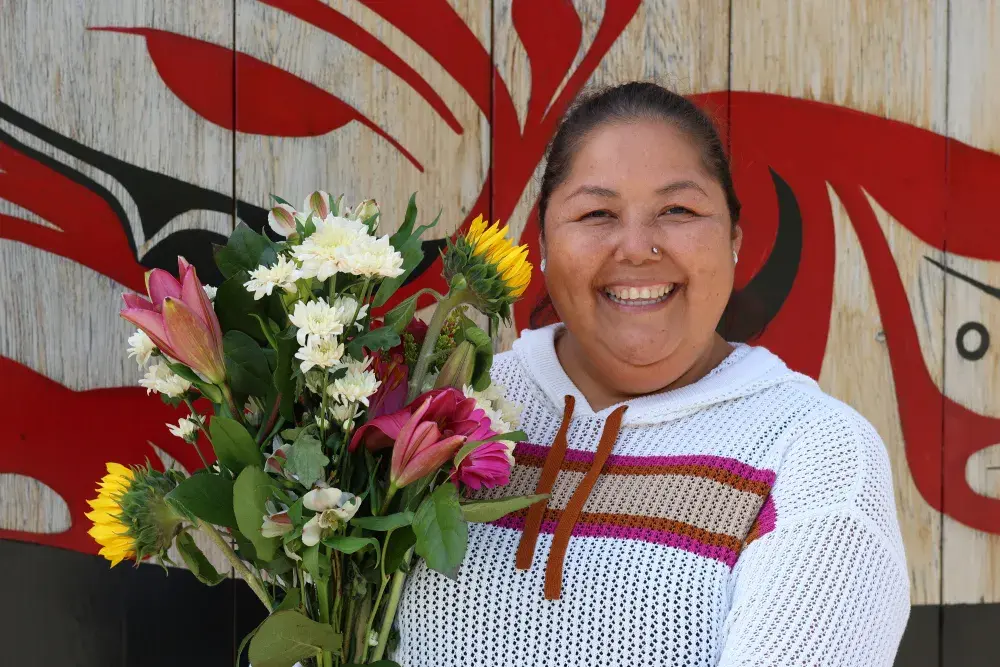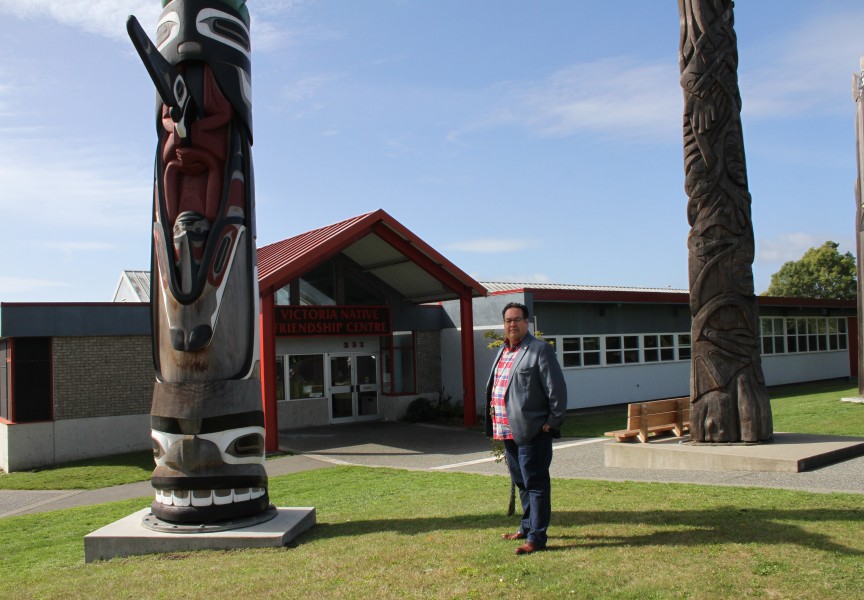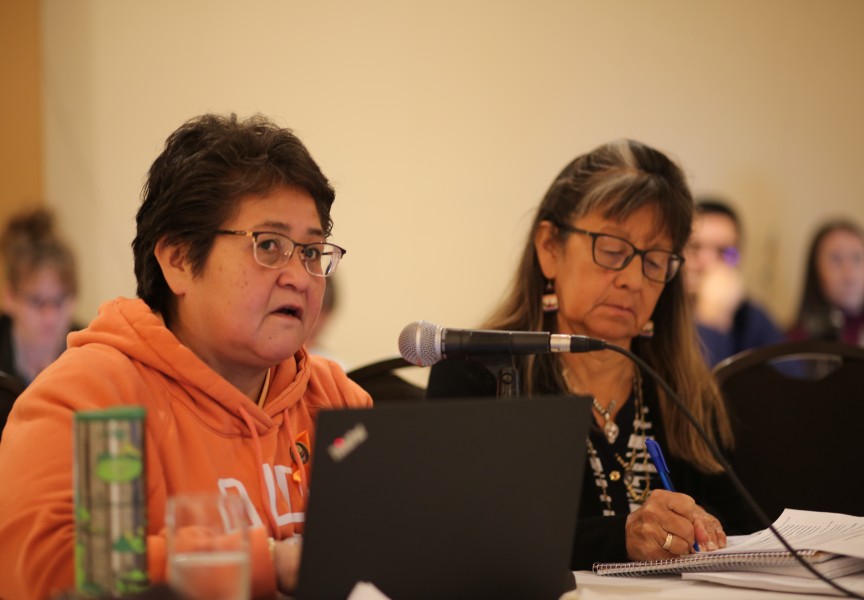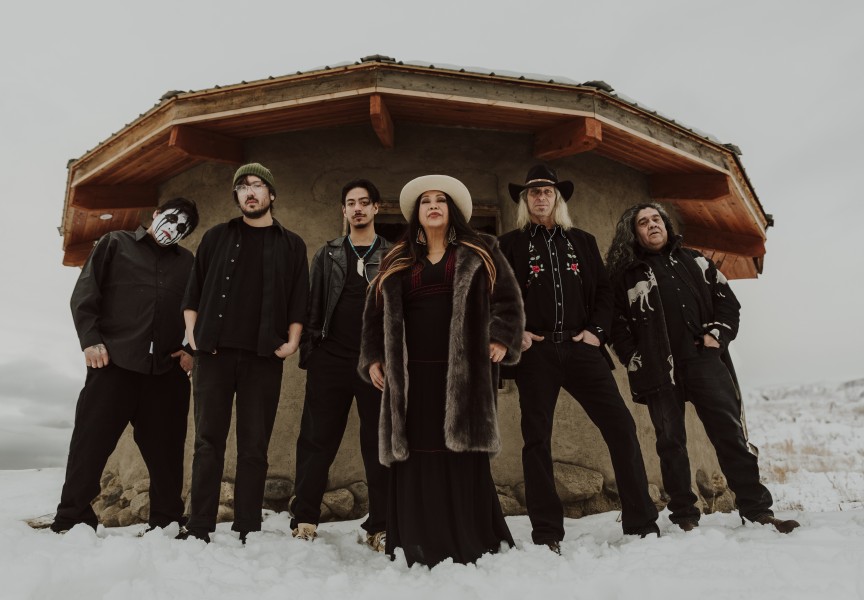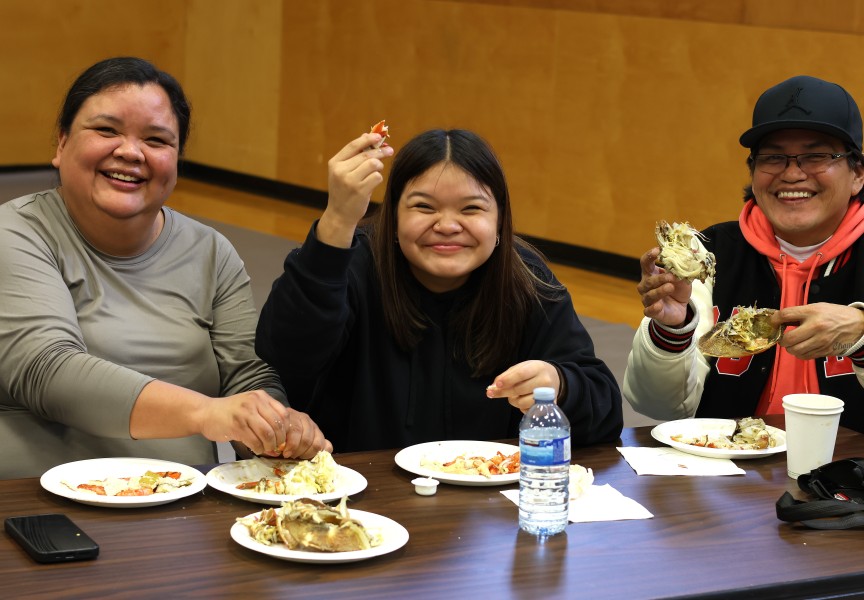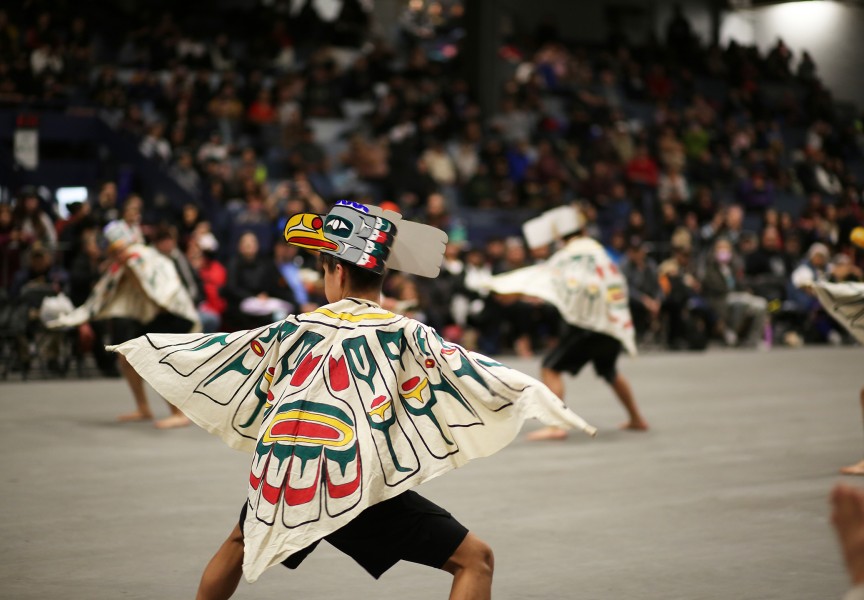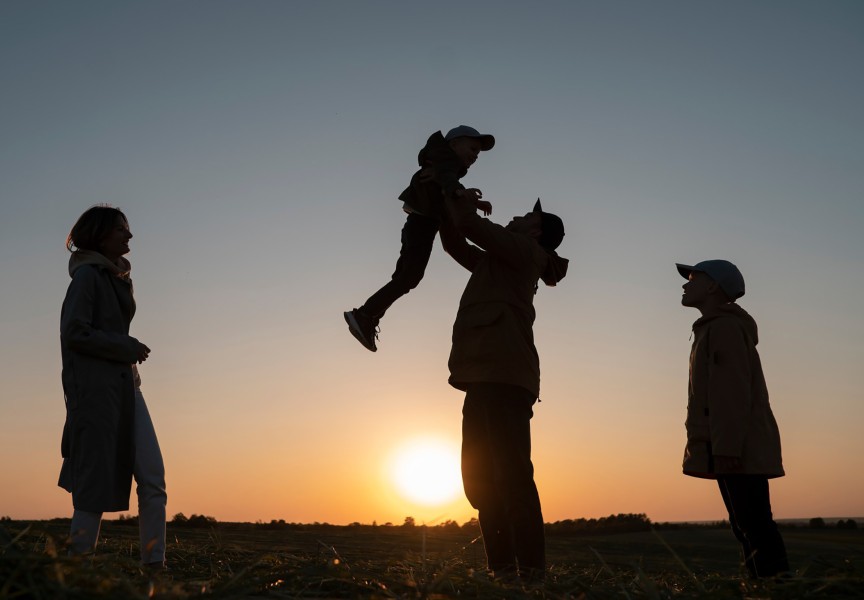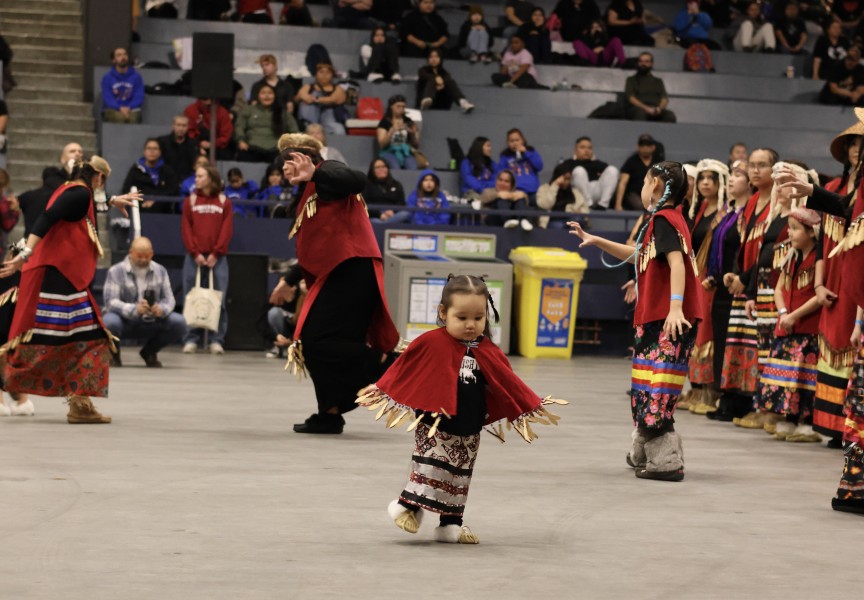Nuu-chah-nulth language keeper Jeneva Touchie (Čakʷaasiqḥw̓iłim) is Ucluelet’s 2025 Citizen of the Year.
Raised by her grandmother, the late Barbara Touchie, Jeneva championed several regional language revitalization projects over the last couple of years. She was instrumental in helping the District of Ucluelet create the first bilingual Nuu-chah-nulth / English street signs and supported BC Transit with translations for their West Coast Transit System bus signs. Most recently, she brought her knowledge and voice to the forest for a new audio box on Ucluelet’s Wild Pacific Trail Ancient Cedars section.
Jeneva, who grew up in the Yuułuʔiłʔatḥ (Ucluelet First Nation) community of Hitacu located across the harbour from Ucluelet, was voted in by the public as Citizen of the Year during the town’s annual Ukee Days festival held on the last weekend in July.
“I was super honoured and thankful to the community,” said Jeneva. “It was just an honour to be nominated amongst other long-time locals. I think it’s really great for Indigenous to be recognized, and not just for myself, but for the many others that do a lot of amazing work as well. It’s nice to feel like you’re contributing to your town in a little way.”
The person who nominated Jeneva for the award stated:
“In this age of reconciliation, the picture of what reconciliation should look like [is] a contentious topic. Arguably an obvious component of that is language revitalization. I feel this for two reasons; first language is essential for a culture’s identity and preservation of its culture and a whole generation of Indigenous Canadians have been stripped of that. The second is posed by aging language carriers and fluent speakers. In our community, only one fluent language elder / teacher remains. This makes the work Jeneva is doing both vital and urgent.”
Bruce Greig, Ucluelet’s director of Community Planning, worked with Jeneva on the street sign project, which was unveiled in July 2022.
“She is dedicated to reinvigorating the West Barkley dialect and passionate about getting people to use the language which has its roots in this place,” wrote Greig in an email.
“I’ve seen Jeneva welcome people to join in learning – whether it’s little kids, adults or elders – by engaging them with respect, a lot of humour and always a huge heart. I think she was named Citizen of the Year because people recognize that Jeneva works at connecting people and also connecting people with this place – she’s a community builder,” he continued.
Jeneva attended Ucluelet Elementary School and Ucluelet Secondary School. She went on to achieve a bachelor’s degree in hospitality from Vancouver Island University and a second degree in Indigenous language revitalization from the University of Victoria. Next July, she’ll embark on a Masters.
Having lived in Ucluelet her whole life, she is one of the few that can truly claim “local status”.
“We were teasing about this at lunch, if you know where Sky Couch is, are you local?” she laughed. “Everyone knows where Sky Couch is though. I tease my husband because we’ve been together 27 years now and after 20 years, (I tell him) you’ve finally got your local status.”
“I think it just depends. You can really tell who is involved in the community,” said Jeneva, who was a member of Yuułuʔiłʔatḥ Government’s legislature for eight years and is now the nation’s manager of language services. “You can see that commitment to being at events and just connecting. I think that’s what makes a local; how involved you are with everyone around you.”
Hesquiaht First Nation and Yuułuʔiłʔatḥ elder Nicki Love has known Jeneva since she was a teenager. She says she thinks about Jeneva and her grandmother every time she walks into the Sičquuʔuƛ (Sitch – KHOO – ootl) Theatre in Pacific Rim National Park Reserve’s Kwisitis Visitor Centre.
“If it wasn’t for young people, we would lose it,” said Love. “I remember doing language with her grandma in the early ‘90s and having brief conversations with Yuułuʔiłʔatḥ language keepers and I just remember her saying if you can read the language, if you can read the phonics, you can speak it. That’s the message I kept in my brain forever.”
With support from a Clayoquot Biosphere Trust (CBT) Neighbourhood Small Grant, Jeneva recently hosted a walk around town to introduce folks to the bilingual street signs and share teachings on how to pronounce Nuu-chah-nulth words.
“I think there was 20 of us. We just went for a nice little walk, had some snacks and talked about our experience and the signs and how to pronounce them. It was really great. It was fun,” she said.
She plans on hosting another CBT walk and will teach with Parks Canada at Kwisitis Visitor Centre come September.

